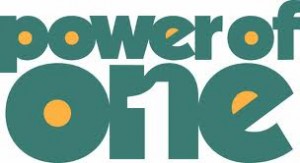 When I landed in law school, I had little understanding of what it meant to be a lawyer. By graduation day, I had a couple ideas. Ten years later, I have a few more. One idea that I had long before I ever entered Sensenbrenner Hall, proved overwhelmingly right. It is simply this: that being a lawyer requires “something more” than showing up for work each day, figuring out what the law is, and regurgitating it in a courtroom or contract. What that “something more” is, has taken me a long time to discover, and I’m still learning.
When I landed in law school, I had little understanding of what it meant to be a lawyer. By graduation day, I had a couple ideas. Ten years later, I have a few more. One idea that I had long before I ever entered Sensenbrenner Hall, proved overwhelmingly right. It is simply this: that being a lawyer requires “something more” than showing up for work each day, figuring out what the law is, and regurgitating it in a courtroom or contract. What that “something more” is, has taken me a long time to discover, and I’m still learning.
When I began practicing, I wholeheartedly took up the generally frenetic pace of this American life, and the new lawyer’s life in particular. Those who have done it will surely agree that, while years in which one bills upwards of 2000 hours are fruitful in some respects, they leave little room for growth in other essential aspects of being human. Bustling with busy-ness and a desire to serve the community, I also did lots of pro bono work and volunteering with the bar. This allowed me to collect a wide variety of experiences in the law and on its fringes. A day of depositions defending a multi-million dollar corporation, might precede a meeting with a homeless shelter director to strategize about meeting legal needs of its individual residents. Thus in 2007, when I switched up my career path to teach justice in an undergraduate setting, I had much to reflect on, some time for it, and perhaps most importantly, a realization of the value in doing so.
I now recognize, praise and honor the lawyer’s unique opportunity to be a force for greater good, in our paid work, our pro bono work, and other moments in which we assert our professional identity. In my writings to you this month, I will highlight three roles that lawyers commonly assume: we are by turns counselors, advocates, and peacemakers. I will share with you a story to illustrate the power each of us has to express that role to its fullest, what I call, “The Power of One.” In the course of these writings, I will share with you more of my own personal journey, and invite you to deliberate about your own path.

